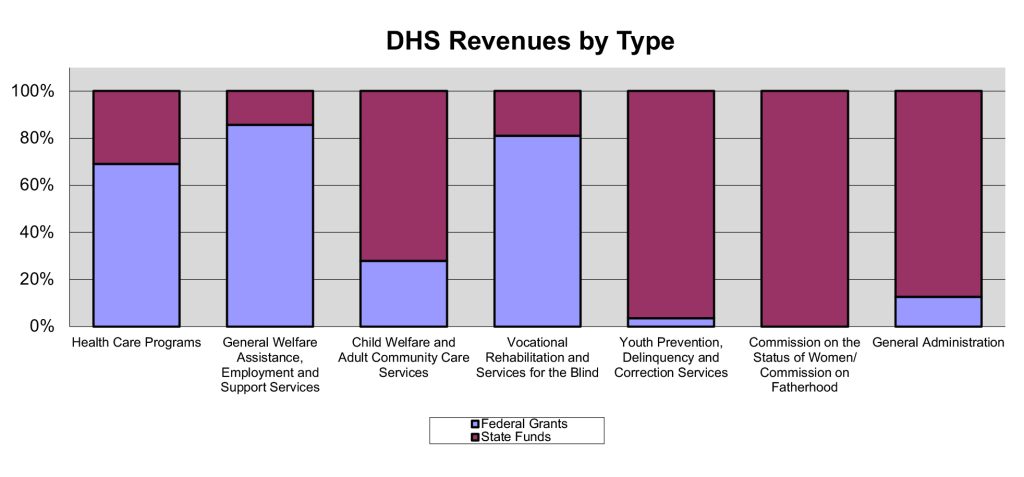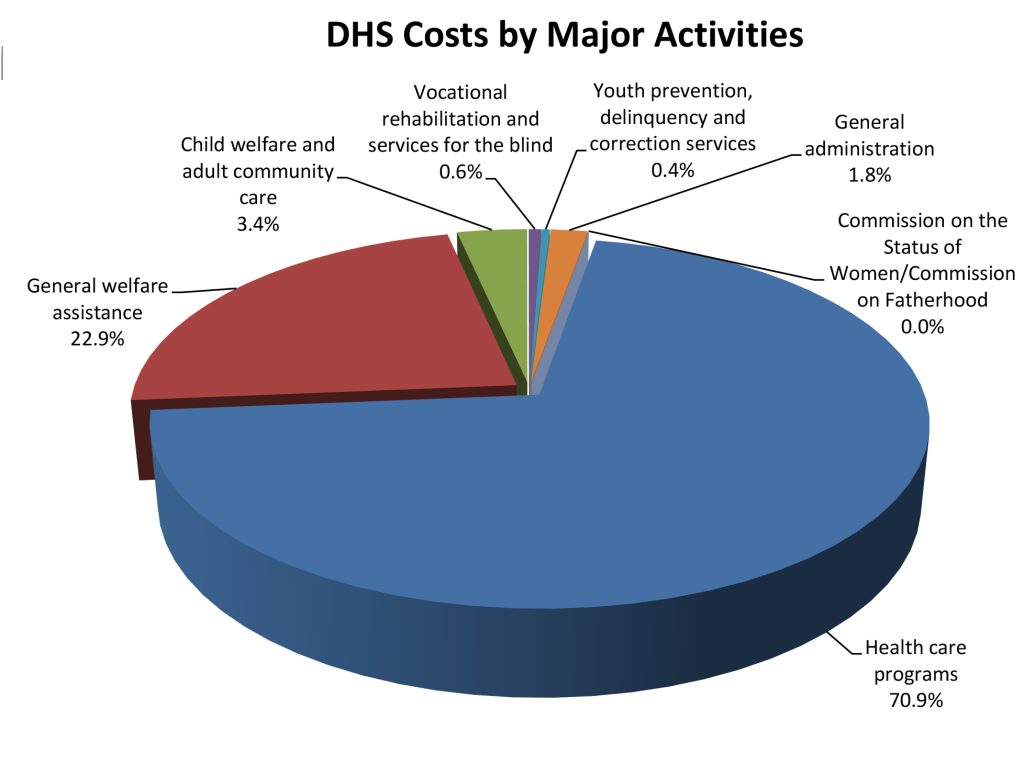Financial and Compliance Audit of the Department of Human Services
Posted on Apr 2, 2025 in Summary|
AUDITOR’S SUMMARY Financial Statements, Fiscal Year Ended June 30, 2024 THE PRIMARY PURPOSE of the audit was to form an opinion on the fairness of the presentation of the financial statements for the Department of Human Services, as of and for the fiscal year ended June 30, 2024, and to comply with Title 2, U.S. Code of Federal Regulations, Part 200, Uniform Administrative Requirements, Cost Principles, and Audit Requirements for Federal Awards (Uniform Guidance), which established audit requirements for state and local governmental units that receive federal awards. The audit was conducted by Accuity LLP. Financial Highlights FOR THE FISCAL YEAR ended June 30, 2024, DHS reported total revenues of $5.11 billion and total expenses of $5.14 billion. Revenues consisted of $1.56 billion in state allotments, net of lapsed amounts plus non-imposed employee fringe benefits, and $3.55 billion in operating grants from the federal government. Revenues from these federal grants paid for 69.2 percent of the cost of DHS’ activities. Health care and general welfare assistance programs comprised 70.9 and 22.9 percent, respectively, of the total cost. The following chart presents each major activity as a percentage of the total cost of all DHS activities. As of June 30, 2024, DHS’ total assets of $771 million included (1) cash of $467.9 million, (2) receivables of $218.77 million, and (3) net capital assets of $84.56 million. Total liabilities of $572.6 million included (1) vouchers payable of $60 million, (2) accrued wages and employee benefits of $34.6 million, (3) amounts due to the state general fund of $150.69 million, (4) amounts due to other governments of $170.98 million, (5) accrued medical assistance payable of $139.5 million, and (6) accrued compensated absences of $16.82 million. Auditors’ Opinions Findings A significant deficiency is a deficiency, or a combination of deficiencies, in internal control that is less severe than a material weakness, yet important enough to merit attention by those charged with governance. The significant deficiencies are described on pages 59-61 of the report. There were six material weaknesses in internal control over compliance that were required to be reported in accordance with the Uniform Guidance. A material weakness in internal control over compliance is a deficiency, or a combination of deficiencies, in internal control over compliance, such that there is a reasonable possibility that material noncompliance with a type of compliance requirement of a federal program will not be prevented or detected and corrected on a timely basis. The material weaknesses are described on pages 63-70 and 72 of the report. There were six significant deficiencies in internal control over compliance that were required to be reported in accordance with the Uniform Guidance. A significant deficiency in internal control over compliance is a deficiency, or a combination of deficiencies, in internal control over compliance with a type of compliance requirement of a federal program that is less severe than a material weakness in internal control over compliance, yet important enough to merit attention by those charged with governance. The deficiencies are described on pages 62, 71, and 73-77 of the report. |
| About the DepartmentThe Department of Human Services (DHS) works to provide benefits and services to individuals and families in need. The majority of DHS’ budget is comprised of federal funds. DHS’ mission is to direct its funds toward protecting and helping those least able to care for themselves and to provide services designed toward achieving self-sufficiency for clients as quickly as possible. Activities include health care programs; general welfare assistance, employment and support services; child welfare and adult community care services; vocational rehabilitation and services for the blind; youth prevention, delinquency and correction services; and general administration. Attached programs include the Commission on the Status of Women and the Commission on Fatherhood. |


